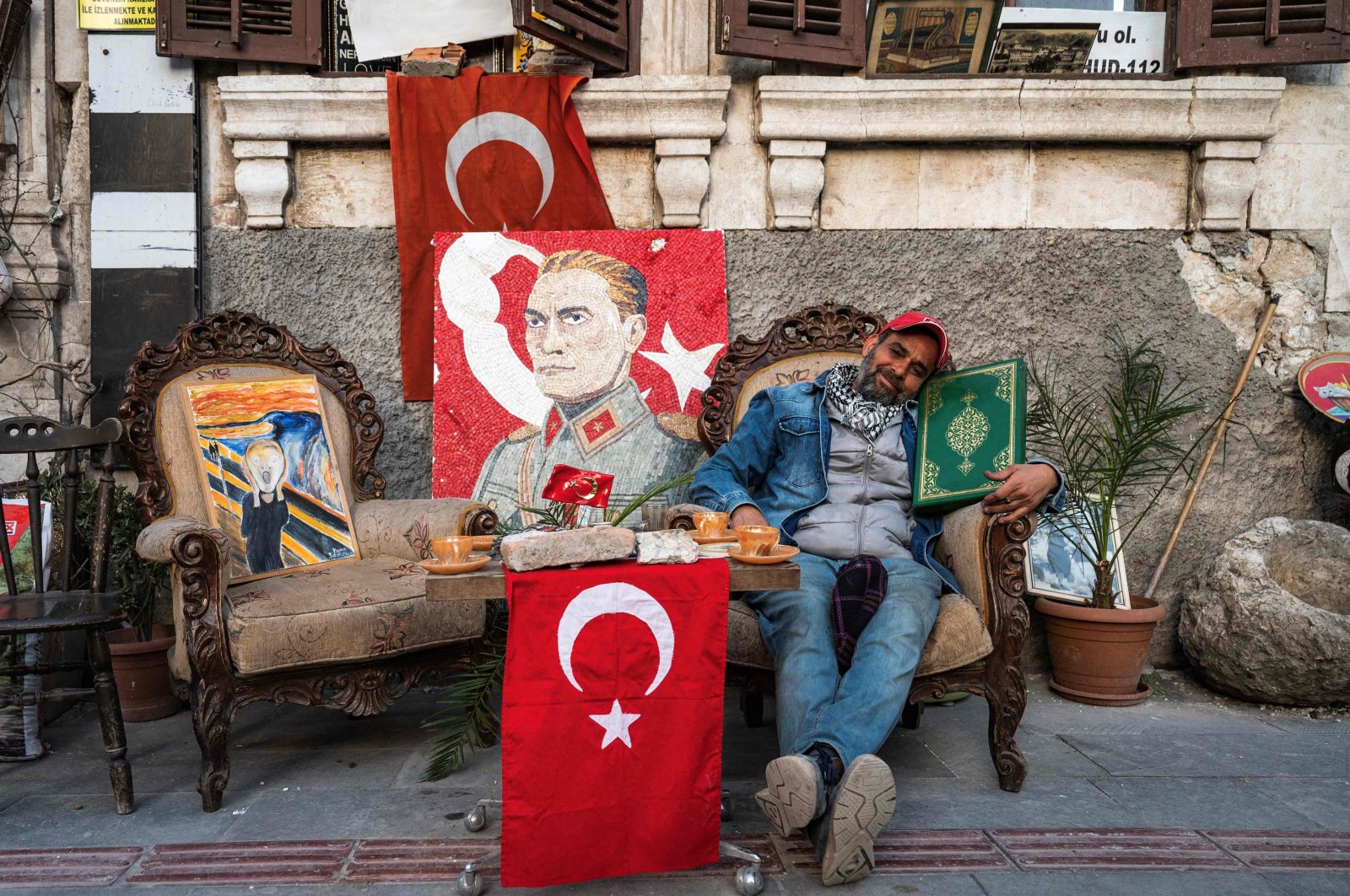
Turkish flags hang defiantly in front of an antique shop in the historical city of Antakya as the sounds of music – classical, iconic, even modern and popular – reach out from the shop and echo through the streets, bringing hope to a mourning city after the devastation of earthquakes.
The fabled city, known as Antioch once upon a time, and tucked between the Mediterranean Sea and Türkiye's border with Syria, endured two 7.7-magnitude and 7.6-magnitude earthquakes on Feb. 6 that killed over 50,000 people.
The domes of its mosques and churches lie in pieces across the ghostly city, which straddles one of the world's most active fault lines and has risen like a phoenix from similar disasters over the centuries.
If it does so again, it will be thanks to persevering residents such as Serkan Sincan. Lounging in one of two upholstered armchairs he set up on the pavement next to a coffee table, the 51-year-old embodies Turkish resilience in the face of the country's worst natural disaster of modern times.
When the ground began to convulse at 4:17 a.m., Sincan managed to get his mother and father out of their flat, move them to a safer city nearby and then help neighbors out of their houses.
"On the third day, I came here and unfolded the big flag first," Sincan told Agence France-Presse (AFP). "It was raining. I saw a friend on the way, he said 'Serkan, your antique shop is down.' I said 'Ok, I will see.' As I was walking, I saw the Ulu Mosque had crumbled, the protestant church was down, everything was down," he recalled. "Then I saw my building."
'Prayers stopped'
It was still standing, suffering only a few cracks in its walls. Some of the shop's plates broke and some books scattered across the floor. "But the house was still standing and I said to myself: Allahu akbar (Allah is the greatest)."
Sincan, who quit his job at the city's municipality almost five years ago because "I didn't like the system," describes himself as an "Islamic socialist."
Upset that daily calls to prayer issued by muezzins fell silent after the earthquake, he began walking the apocalyptic streets and singing them himself.
"Prayers stopped in Antakya. The muezzins ran away, they left the house of Allah," he said. "I am sleeping in this building. I am making the call to prayer. People say I am crazy."
Clearly, not everyone does. Last week, workers rigged up an emergency power line to his shop so that he could play his music – everything from opera and Turkish ballads to old Pink Floyd songs.
'Gave me hope'
"This is our routine. In the past, my customers knew I played cassettes and records. This is how my shop works," he said.
Now, after clearing up his street and setting up his lounge chairs, he serves coffee and treats whoever stops by his shop – mostly volunteers, municipal workers and charity organizers who flocked to Antakya after the quake.
Özge Eser, a teacher whose building collapsed, said the sight of Sincan's open shop gladdened her.
"I came here a day before the quake. I bought a child development book and a legal book for my brother, who is a lawyer," she said. "I was very happy to see it's open. It really gave me hope when I lost my hope."
Echoing President Recep Tayyip Erdoğan's pledge to rebuild the entire earthquake region within a year, Sincan sounded certain that Antakya would soon return to glory.
"One or one-and-a-half years from now, the old Antakya will be much nicer and much better," he said.
